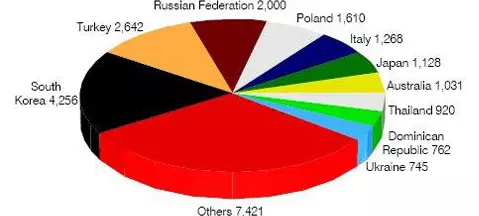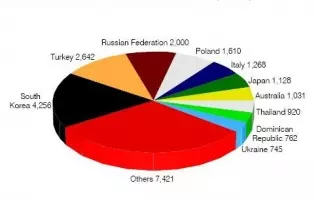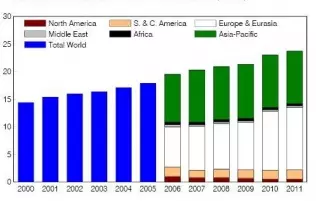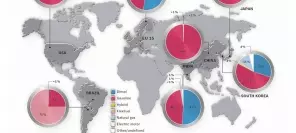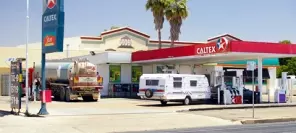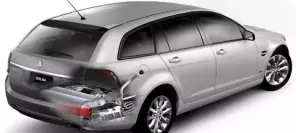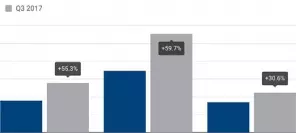- Main page
- Search
- Up to date
- Products
- Technology
- Vehicles
- Video
- Conversion Payback Simulator
Port Injection - Conversion Payback Simulator
Direct Injection - Conversion Payback Simulator
Diesel - Newsletter
Autogas - world's most common alternative fuel
 loading results...
loading results...Autogas is the third most commonly used motor fuel in the world overall. It is estimated that 23 million vehicles run on it and they are refueled at 57 thousand stations retailing the fuel. LPG's popularity comes mainly from its ease of use, safety record and low price. As for the latter, in many countries autogas is priced at half the price of petrol.
Using LPG is particularly common in the European Union (especially in Poland, Germany, Italy, the Netherlands, Lithuania or Croatia), Turkey, Australia, South Korea, Hong Kong, India, the Philippines, Serbia or Macedonia. Of the above, Turkey is the country with the largest LPG-powered car ratio as 37% of all passenger cars there run on the alternative fuel. In fact, already more cars use LPG than petrol. In Australia there are 615 thousand autogas cars, many of them taxis. LPG-powered taxis are even more popular in Hong Kong, though – 100% of such vehicles are fueled with it. Some of Hong Kong's light city buses are, too.
One often cited example of autogas use is the British royal court – Queen Elizabeth II either has or used to have a number of LPG-powered vehicles, including a Rolls-Royce Phantom VI and a custom-built, factory-converted Bentley State Limousine. Across the Atlantic, in the US, president Barack Obama has issued a memo obligating all federal fleets of vehicles to incorporate vehicles running on alternative fuels by the end of 2015. Autogas-powered school buses, taxis and police cars are already used in several US states, so it is expected that the numbers will grow to comply with the president's guidelines.
Provided that clean, alternative fuels are poised to play a key role in addressing environmental issues caused by the growing use of conventional motor fuels, autogas is bound to grow strong quickly around the world. Low emission levels of harmful compounds in LPG exhaust gasses, among the lowest of all fossil fuels, definitely speak in favour of using autogas. It has been proven that using LPG instead of petrol contributes to significantly reducing CO2 emissions. Also, LPG exhaust fumes contain practically no black carbon, a major greenhouse effect-causing factor. Furthermore, autogas produces by 96% less nitrogen oxides compared to diesel (68% less compared to petrol) and 120 times less particulate matter (than diesel).
In order to address the many challenges related to sustainable growth, global economy will have to use a broad variety of energy solutions, whose reasonable use will make it possible to put all sorts of fuels and energy sources to most efficient use. Autogas should be a major force here. Since it is a side product of natural gas production and crude oil refining, it's readily available and should be commonly utilised to address the world's energy needs and requirements. In particular, it should be used even more than it is today to fuel passenger cars. Luckily, this is already happening.
